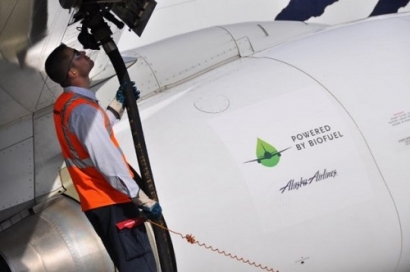
The biofuel option will be available for customers accepting new airplanes at Boeing’s delivery centers in Seattle and Everett, Washington. The company also plans to use biofuel for certain flight tests at its Boeing Field facility, while working to offer the same option at its Charleston, South Carolina, Delivery Center.
“This is another step in our decade-long journey to encourage the adoption of sustainable fuels and help commercial aviation earn its license to keep growing,” said Sheila Remes, vice president of strategy at Boeing Commercial Airplanes.
Alaska Airlines, the first participant in the program, will use a blend of biofuel made by World Energy and traditional fuel when it takes delivery of three Boeing 737 MAX airplanes this year.
“Alaska takes seriously the responsibility to deliver for all those who depend on us—employees, guests, our communities and the environment around us—for the long term. That’s the definition of sustainability,” said Diana Birkett Rakow, vice president of external relations at Alaska Airlines.
World Energy produces the biofuel at its refinery in Paramount, California, the world’s first facility designed to commercially produce renewable jet fuel. Made from agriculture waste, the fuel is certified for commercial use and can be blended with traditional jet fuel without modifications to airplanes, engines or fueling infrastructure.
“World Energy is here to serve any organization committed to leading the shift toward a low-carbon future,” World Energy Chief Commercial Officer Bryan Sherbacow said.
EPIC Fuels will ship the biofuel to Boeing’s delivery centers in Washington state. EPIC has supported Boeing’s evaluation of biofuels on its ecoDemonstrator flight-test program.
Boeing has been a leader in fostering the development of biofuels, including supporting the first commercial aviation test flight flown by Virgin Atlantic in 2008. A decade after the first test flight, airlines around the world have flown nearly 170,000 passenger flights on a blend of biofuel and petroleum fuel.
Boeing has worked with partners across the globe to develop sustainable biofuel supplies that can be scaled and priced competitively with traditional jet fuel. Projects have used feedstocks such as forestry and agriculture waste, Brazilian sugarcane, and plants irrigated by coastal seawater in the United Arab Emirates.

